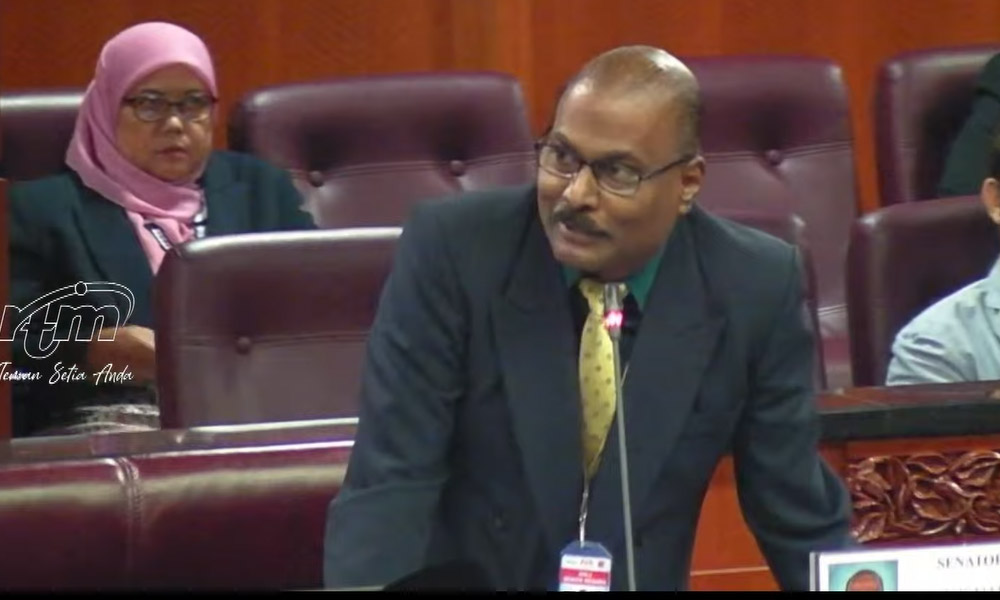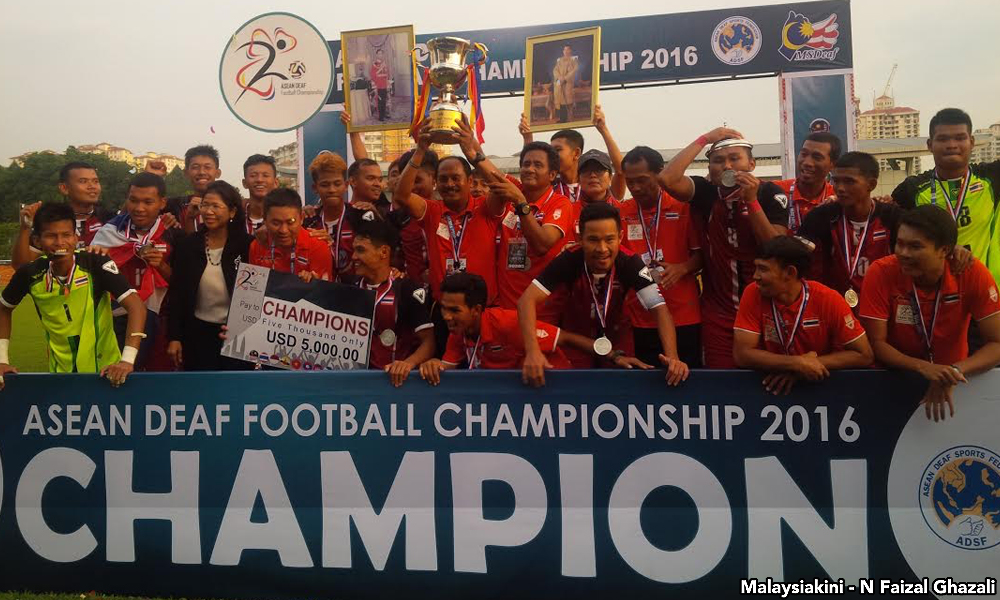Malaysiakini recently published an interview with Senator Isaiah Jacob entitled “Senator: Community deserves better, ditch ‘kurang upaya’ term”. Despite the opportunity, I find the written article frustratingly lacking in depth.
Equally worrisome, some statements made by Isaiah were problematic, while others were contradictory.
As a person who engages in disabled people’s advocacy in Malaysia, I am afraid some of his statements may negatively affect the advocacy work done so far and the likelihood of his ideas becoming the “new model” without a deeper understanding and critical interrogation.
First, a couple of important disclaimers. In this article, and even in my previous writings, I use the term “disabled person/people” because I strongly believe that persons with impairment and/or chronic illness are disabled not by their impairment and/or chronic illness.
Instead, they are disabled because of physical, social, cultural, economic, technological, legal, and political ecosystems based on so-called “able-bodied” or “typical” standards imposed onto persons with impairment and/or chronic illness.
I will only use the term “persons with disabilities” if the official document uses such a term as part of its title. I will also use identity-first language when referring to persons from a specific impairment group.
I also want to clarify that I am writing this letter neither to ignite nor to exacerbate squabbles between the senator and the community. This is not a personal attack towards Isaiah. I am critiquing his ideas and statements because he is a public figure who is positioning himself as a representative of disabled persons in Dewan Negara.
There were several statements made by Isaiah that I am also in agreement. These include the call for legislative actions to facilitate inclusion efforts and adopting a flexible and conducive working environment through technological advancement.

Problematic statements
Having said that, there were several statements that are philosophically and politically problematic, if not harmful to the cause and discourse.
First, he objected to the term “kurang upaya” because he viewed such a term as demoralising and stigmatising for disabled people. The phrase “persons who are less able” is contextually incorrect and merely a literal translation of the term “orang kurang upaya”. The words “kurang upaya” actually refer to impairment.
Prior to the tabling of the Persons with Disabilities Act 2008, a discourse was held about the appropriate terms. Due to cultural justification, among others, the term “orang kurang upaya” was finally used to replace the term “cacat” which was viewed as harsh and impolite.
I agree that the word “upaya” (able) is very problematic in discussing the language of disablement. Equally frustrating and disappointing is the word and concept “cacat” (impair/impairment) continues to carry negative denotation and connotation in the Malay language and Malaysian society.
Disabled v specially-able
Second, it is very ironic and problematic when Isaiah argued that disabled persons are equally talented and should enjoy equal rights as others, but at the same time insisted on calling this community “specially-able”. Disabled persons do not have special abilities such as teleportation, flight, or laser rays like the X-Men characters.
Disabled people can learn and do similar skills like non-disabled people, too, just for most of them, using different methods. A blind man can read materials using braille or screen reader software, while a sighted man can read printed materials. Similar skill, slightly different way. Nothing special.
The insistence on using the label “specially-able” may lead to the perception of exclusivity and disconnection in human rights comprehension and application, ie special rights.
Disabled persons do not have special rights. They have and should enjoy the same rights as others. This is very clear in the Convention on the Rights of Persons with Disabilities and the Persons with Disabilities Act 2008.

Many, if not most Malaysians may see the human rights provisions as different or more robust in these two instruments because, in reality, non-disabled persons unconsciously enjoy all of these rights because the current physical, social, cultural, economic, technological, legal, and political ecosystems based on so-called “able-bodied” or “typical” standards. Thus, many take these aspects for granted.
Third, it is very worrying when he advanced his concept of “specially-able” by citing his call for his colleagues in the Senate to stand on one leg for one minute. As written in the article, he wanted to illustrate that disabled people usually must “make extraordinary efforts to achieve what others might take for granted”.
By asking other senators to stand on one leg for one minute, he missed the crucial opportunity to use his platform to advocate for inclusive parliamentary processes, where all senators, including those who may have a mobility impairment and cannot stand, can participate meaningfully in all parliamentary sessions.
By asking other senators to stand on one leg for one minute, he inadvertently reinforces ableist practices, ie able-bodied standards remain fundamental, universal, and mandatory standards for everyone to abide by.
Although I recognise the fact that disabled persons usually have to do more just to be accepted as equals, he seemed to celebrate such phenomena without critically scrutinising such a culture in our society.
Such a culture can be harmful because it promotes inspirational pornography and a “supercrip” mentality. I am afraid that we may unknowingly (what’s worse, we knowingly) push for disabling the neoliberalisation of people’s motivation, hard work, and resilience, without critiquing structural and systemic failures.
I am also at fault for not voicing my concerns about the “one-leg stunt” when it happened. I was hoping that Isaiah would use this past year and a half to reflect and deepen his knowledge about disability-related issues.
Finally, though his statement about the lack of collaboration between the disabled community and the government is true, the article did not provide the full context of the problem. Plus, he seemed to be criticising the community.

Systemic barriers
I am not saying that the disabled community has no fault in this, but fair context must be provided. Disabled persons face structural and systemic barriers, either in capacity-building, political representation, or even participation in the policy-making process.
If I were the interviewer, I would ask, what did you do as the senator? What did you do as the chief of PKR’s OKU Political Bureau? What catalytic works have you done with disabled people’s organisations, such as the Malaysian Confederation of the Disabled?
Why am I critiquing his ideas and statements? Because he currently occupies a position of power in public - a senator. His position and the influence that comes with that position may shape the policy, the public, and the future. As such, he must be careful when proffering his ideas and opinions in a public arena.
Everyone, including a senator, has the right to express his or her opinion, but there are also aspects of responsibility and accountability, especially for public officials.
To Isaiah, I humbly urge him to revisit his ideas and statements, critically deconstruct them, and reshape himself to truly be, as he said, “who are capable and have good professional skills or are able to represent minority and special interest groups”. - Mkini
The views expressed here are those of the author/contributor and do not necessarily represent the views of MMKtT.



No comments:
Post a Comment
Note: Only a member of this blog may post a comment.